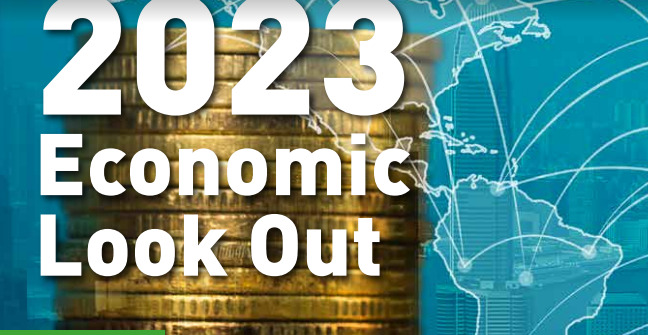2023 Economic Look Out

What will the New Year usher in, in emerging markets and in Kenya? From an economic perspective, the following is expected in emerging markets:
GDP Growth
Global economic experts appear to be in agreement that there will be an economic growth slowdown but it will not reach pre-Covid rates. Sub-Saharan Africa (SSA) and China will be the only exceptions. China is expected to grow at a forecasted rate of 4% which is quite low for the country due to expected infrastructure spending. The recent lifting of lockdowns in China after protests led to a slight economic surge which was brought down as Covid spread throughout the country. This has led to food and medical shortages. In SSA, South Africa and East Africa are expected to experience faster growth.
Commodities Outlook
Commodity prices are expected to weaken in 2023 from the rise in 2022 when they rose sharply.
– Grain
While the Ukrainian war is expected to continue, grain prices are expected to fall as wheat gets out of Ukraine and into the world markets through the Black Sea Grain Initiative. A 15% fall in prices is expected.
– Oil
Estimates of Oil prices in 2023 are expected to fall from 102 USD per barrel in 2022 to 95 – 98 dollars a barrel in 2024. Oil demand will still be higher but will slow down. Russian production is expected to fall by 5% due to lack of market.
– Industrial Metals
Prices of industrial metals will fall but remain closer to their current peak. Prices for Chinese metals like copper and iron will ease. Production of copper will rise more than its consumption. Prices of Russian metals such as nickel and platinum are expected to rise due to sanctions on Russian metals.
Inflation
Inflation will ease globally due to a reduction in food and energy prices. Therefore, inflation is expected to come down globally in emerging markets but remain high in SSA. This is due to reduced supply chain problems, a softer USD and weaker demand.
Currencies
A slower pace of depreciation which will ease inflationary pressures is expected. Currencies will continue to depreciate in 2023 but less than they did in 2022.
Industrial Policy
– Energy
The EU is moving away from Russian oil and gas imports and is looking towards Africa for supply. African countries like Algeria even have pipelines to Europe. Senegal, Angola, Mozambique and Mauritania also have significant gas supplies that could feed into Europe.
– Semiconductor chips
The semiconductor market shortages caused by labour and material shortages are expected to continue in 2023.
Structural issues
Growth in emerging markets is expected to slow down in the future due to a number of issues:
GDP growth per capita is slowing down in mainland China. The country is already experiencing problems due to its resource heavy growth model.
The labour force in SSA will continue to rise by 3% per year while other emerging markets will continue losing their working age population. Demographics in developed markets will affect demand for commodities. Developed markets will depend less on oil in the future and this will affect oil dependent african economies. This is also the same for commodities.
Kenyan 2023 economic outlook
The World Bank estimates that Kenya will grow at a rate of 5% despite the high inflation which is currently above the Central Bank rates and the recent drought which has been somewhat alleviated by the recent rains. Kenya’s high debt has put pressure on the country to service its debt.
Sources: Fitch, JP Morgan, World Bank

